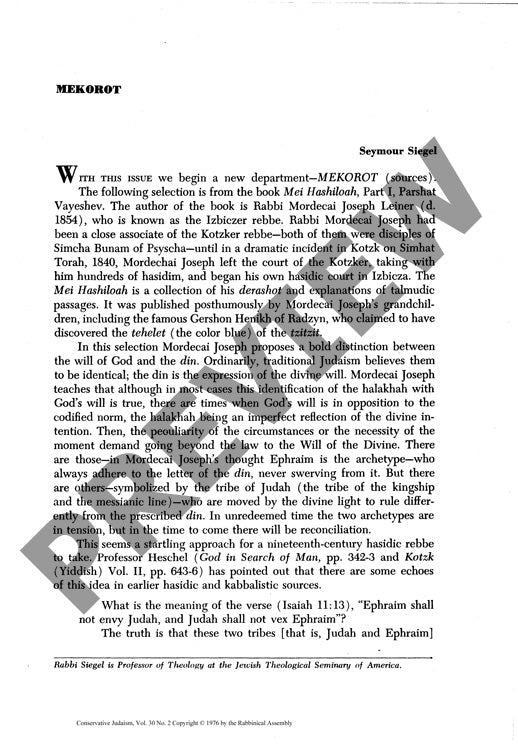Mekorot
Couldn't load pickup availability
A radical theological tension between divine will (ratzon Hashem) and codified Jewish law (din) emerges in the writings of Rabbi Mordecai Joseph Leiner (d. 1854), the Izbiczer rebbe, challenging centuries of traditional rabbinic thought. Through close analysis of hasidic commentary in Mei Hashiloah on Parshat Vayeshev, Leiner's work reveals two archetypal approaches to religious law: Ephraim's strict adherence to prescribed halakhah versus Judah's responsiveness to divine illumination that may transcend legal codification. These opposing tendencies, while creating friction in unredeemed time, point toward ultimate reconciliation in the messianic era. Though seemingly revolutionary for a 19th-century hasidic leader, Leiner's framework draws on earlier kabbalistic and hasidic precedents, marking a significant evolution in Jewish legal philosophy regarding the relationship between divine intention and juridical implementation. This new scholarly department presents primary source texts from Jewish theological literature to examine this profound theological innovation within the context of 19th-century Hasidism.

More Information
-
Physical Description
-
Publication Information
Published 1976
ISBN
-
Publication Credits
Seymour Siegel

